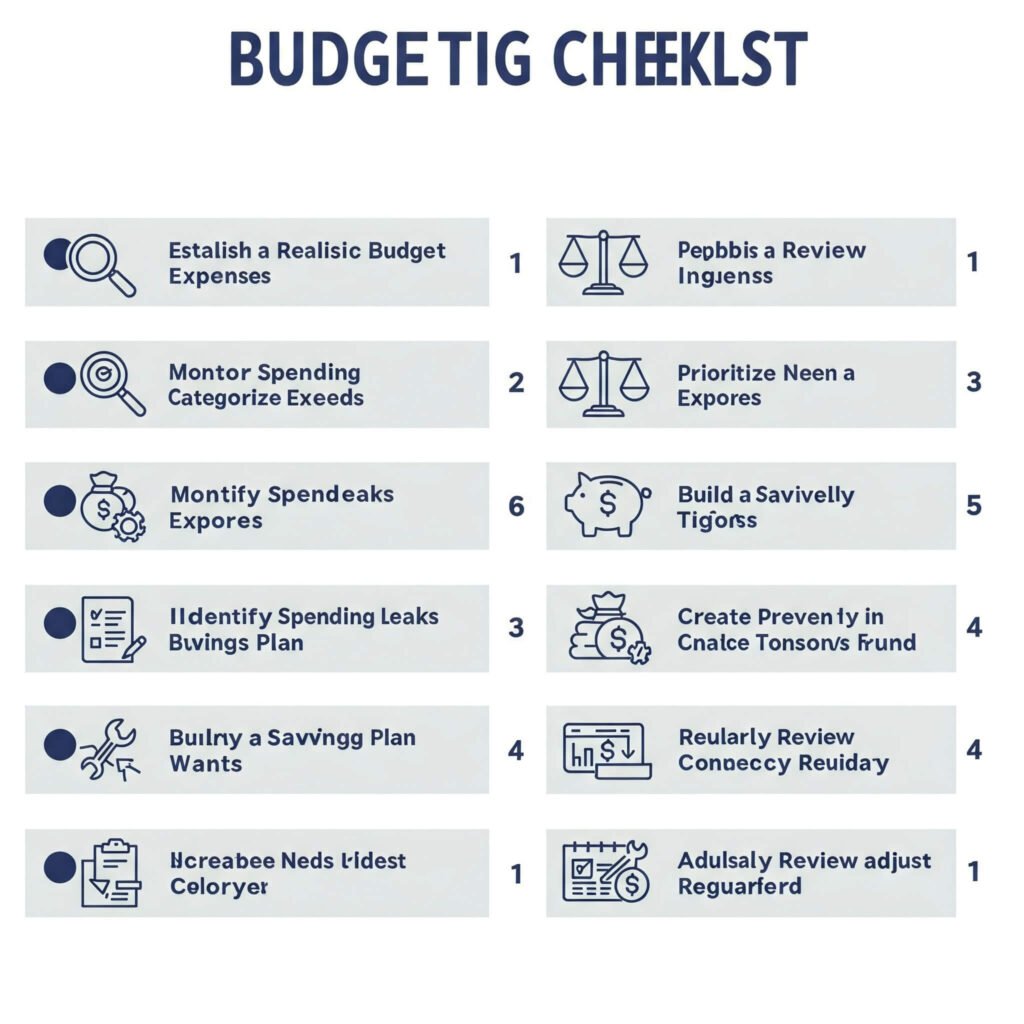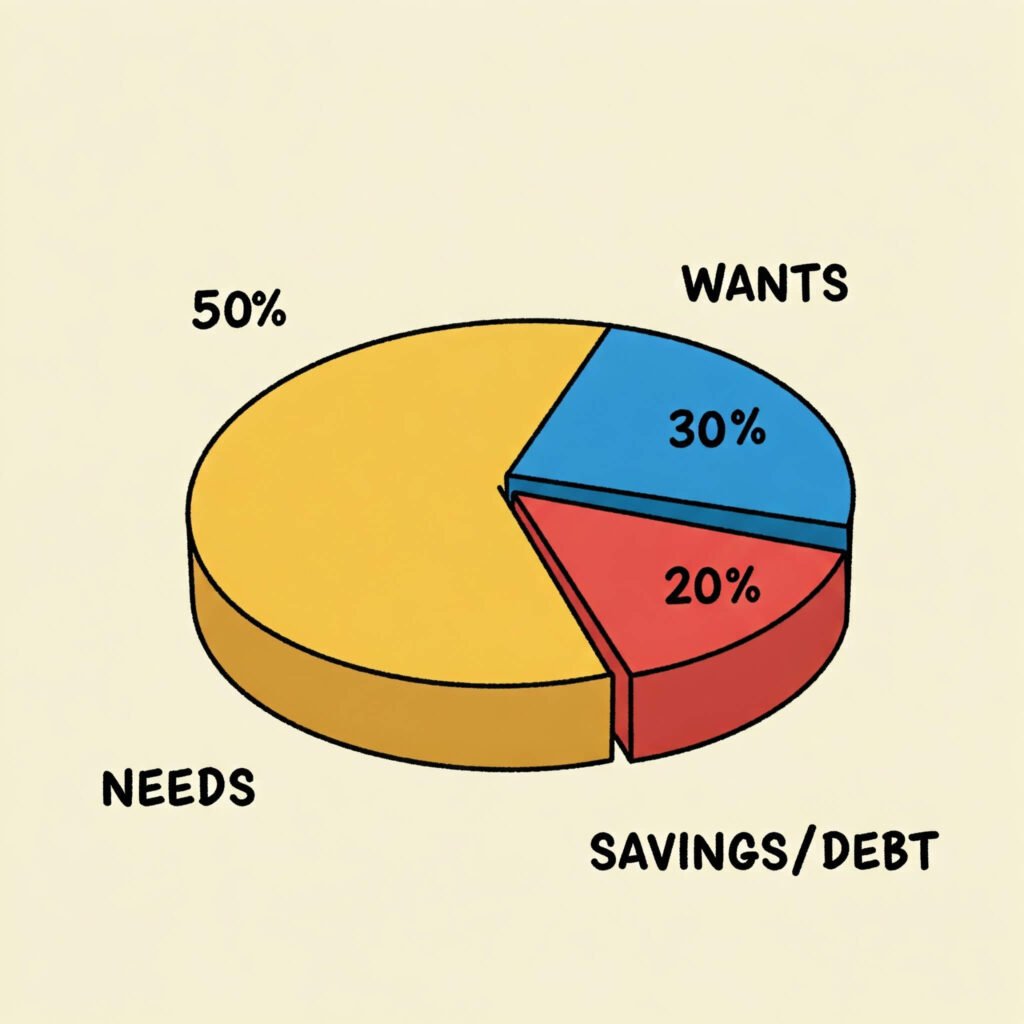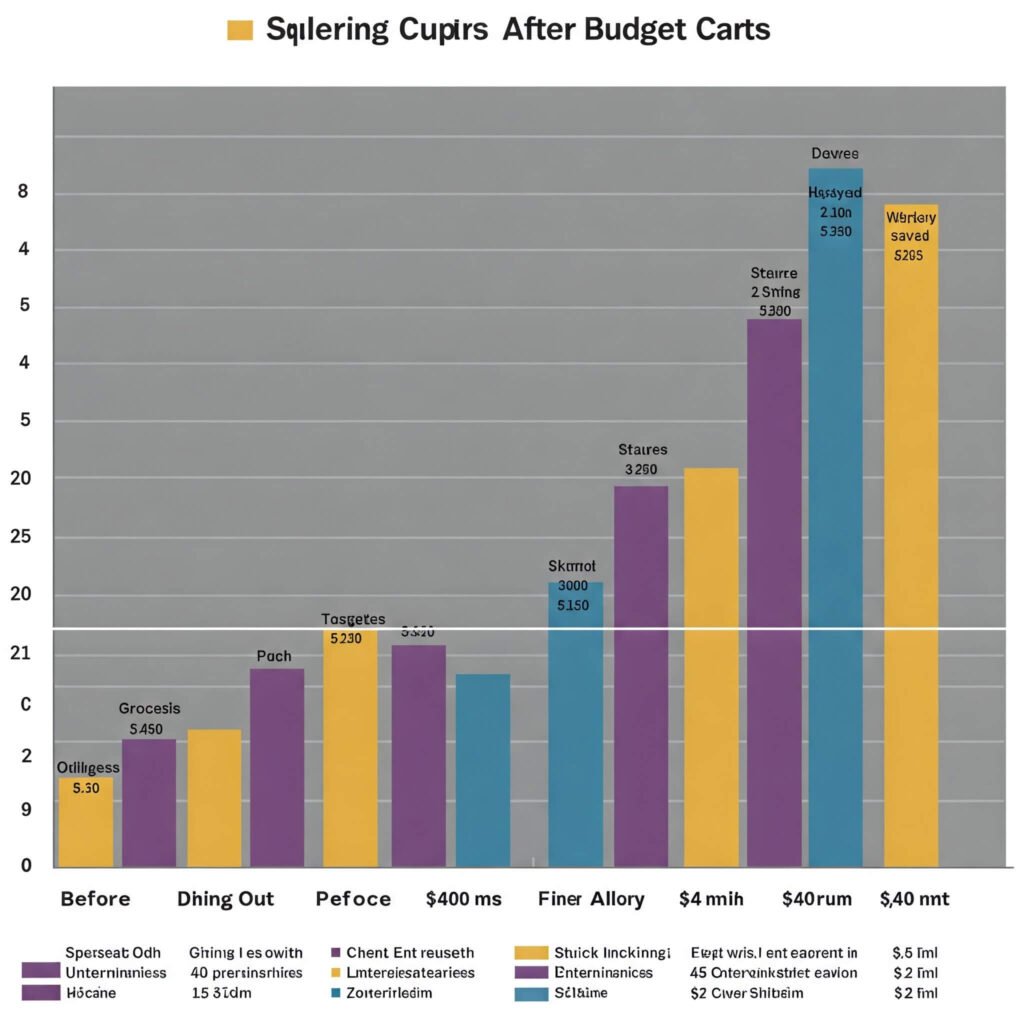
Why Sticking to a Budget Matters
A budget is your roadmap to financial stability, helping you manage money and achieve goals like saving for a home or paying off debt. A 2024 survey by the National Foundation for Credit Counseling found that 60% of Americans struggle to stick to a budget due to unexpected expenses. Mastering this skill reduces stress and builds wealth over time.
The Cost of Not Budgeting
Without a budget, you risk overspending or falling into debt. For example, Sarah, a 29-year-old barista, ignored her budget and racked up $5,000 in credit card debt. By recommitting to budgeting, she paid it off in two years and started saving for a car.
Outbound Link: Learn more about budgeting benefits at Consumer Financial Protection Bureau.
Step 1: Create a Realistic Budget to Stick To
A budget you can stick to starts with realism. Here’s how to build one:
- Track Income and Expenses: Use apps like Mint or a spreadsheet to monitor cash flow.
- Follow the 50/30/20 Rule: Allocate 50% for needs (rent, groceries), 30% for wants (dining out), 20% for savings/debt.
- Account for Irregular Costs: Set aside money for annual expenses like insurance or car maintenance.
Pro Tip: Be honest about your spending habits to avoid unrealistic cuts.
For instance, Alex, a 32-year-old teacher, included $50/month for coffee in his budget, making it easier to stick to.

Step 2: Prioritize Needs to Stick to Your Budget
When life gets expensive, focus on essentials to stay within your budget:
- Identify Needs: Cover rent, utilities, groceries, and minimum debt payments first.
- Cut Wants Temporarily: Reduce spending on non-essentials like subscriptions or entertainment.
- Negotiate Bills: Call providers to lower rates on internet or insurance.
For example, Mia, a 27-year-old nurse, negotiated her phone bill down by $20/month, freeing up cash for groceries during a tough month.
Outbound Link: Find bill negotiation tips at NerdWallet.
Step 3: Build an Emergency Fund to Support Your Budget
Unexpected expenses can derail your budget. An emergency fund acts as a buffer:
- Start Small: Save $500-$1,000 for minor emergencies.
- Automate Savings: Transfer $25-$50/month to a high-yield savings account.
- Use Only for Emergencies: Avoid dipping into it for non-essential spending.
Lisa, a 35-year-old freelancer, used her $1,200 emergency fund to cover a car repair, keeping her budget intact.
Outbound Link: Explore high-yield savings accounts at Bankrate.
Step 4: Adjust Your Budget When Costs Rise
Life’s expenses fluctuate, so adapt your budget to stay on track:
- Review Monthly: Check spending and adjust categories as needed.
- Trim Non-Essentials: Cancel unused subscriptions or reduce dining out.
- Find Cheaper Alternatives: Shop at discount stores or switch to generic brands.
For instance, Raj, a 30-year-old engineer, switched to a cheaper gym membership, saving $30/month when rent increased.

Step 5: Stay Motivated to Stick to Your Budget
Budgeting is a marathon, not a sprint. Keep motivated with these tips:
- Celebrate Small Wins: Reward yourself with a small treat (e.g., a coffee) for sticking to your budget.
- Visualize Goals: Keep a photo of your dream (e.g., a vacation spot) to stay focused.
- Use Budgeting Apps: Tools like YNAB provide real-time feedback to keep you engaged.
Priya, a 28-year-old marketer, stayed motivated by tracking her progress in YNAB, saving $2,000 for a trip in a year.
Outbound Link: Discover budgeting apps at The Motley Fool.
Step 6: Handle Budget Busters Like a Pro
Life’s surprises—medical bills, car repairs—can test your budget. Here’s how to manage them:
- Pause Non-Essential Spending: Skip luxuries until the crisis passes.
- Use Side Hustles: Earn extra cash through freelancing or ridesharing.
- Seek Help: Look into payment plans for large bills or local assistance programs.
For example, Tom, a 33-year-old designer, took on a freelance gig to cover a $900 medical bill, avoiding debt.
Key Takeaways for Sticking to a Budget
- Build a Realistic Budget: Use the 50/30/20 rule and track expenses.
- Prioritize Needs: Focus on essentials when costs rise.
- Save for Emergencies: A small fund prevents budget derailment.
- Adjust Regularly: Adapt to changing expenses.
- Stay Motivated: Celebrate wins and visualize goals.
Sticking to a budget, even when life gets expensive, is achievable with discipline and smart strategies. Start today, and take control of your finances!











































